While a bird flapping its wings may look like the bird is getting ready to take flight, when he doesn’t, why is my bird flapping its wings?
Most people think it’s a natural behavior of birds but there are a few reasons why your bird might be flapping its wings, especially pet birds. So why is my bird flapping its wings?
Birds flap their wings for seeking attention, showing excitement, communicate, ward off predators, take off for flight, or show emotions. Young birds often need to practice flapping their wings in order to build up the strength and muscle coordination necessary for flying. Bird may also be flapping wings as a way to regulate their body temperature.
Although there are more small reasons why is my bird flapping its wings but these are the main reasons.
A bird flapping its wings along with screaming means the bird is upset, angry, or scared. And vice versa if the bird is flapping its wings along with singing, talking or whistling, or making soft noises, it probably is showing excitement and joy.
Why Is My Bird Flapping Its Wings But Not Flying?
From ruffling their feathers to flipping and wagging their tails and legs, birds do everything for a reason. And that’s the same for flapping its wings. Although it’s natural for birds to flap their wings, it doesn’t mean birds do it just for doing it. In fact, there’s a lot a bird tells when flapping its wings. Here are they.
-
Seeking Attention
If you’ve ever wondered why your bird is flapping its wings, it could be seeking attention. if your bird is flapping its wings more than usual, it could be trying to get your attention.
If the bird is screaming, and making high-pitched like hissing or screeching, chances are the bird needs something. It might be hungry or thirsty, or it could be sick or injured especially if the bird’s wings are dropping.
Flapping wings can also be a sign of stress or fear. Birds will sometimes flap their wings when they feel threatened, as a way of intimidating predators or warning other birds of danger. Paying attention to your bird’s behavior is the best way to figure out what it needs.
-
Showing Excitement
A common reason why birds flap their wings is to show excitement. When a bird is excited, it will often spread its wings and flap them energetically. This behavior is often seen during mating season, when birds are trying to attract mates, or when they are defending their nests.
However, when the bird is pet, it will show excitement to its caretaker and owner.
-
To Communicate
You may have noticed that your bird likes to flap its wings from time to time. While it may seem like your bird is just trying to get some exercise, bird is actually wing flapping as a form of communication. Birds are social creatures, and they may flap their wings and make noise if they feel isolated or ignored.
Birds use their wings to send visual signals to other birds or you, and depending on the type of message, bird will flip its wings accordingly.
For example, a quick wing flap may be used to warn another bird of danger, while a slow wing flap may be used to signal that the bird is not a threat. In addition to visual signals, wing-flapping can also be used to create auditory cues that help birds communicate with each other.
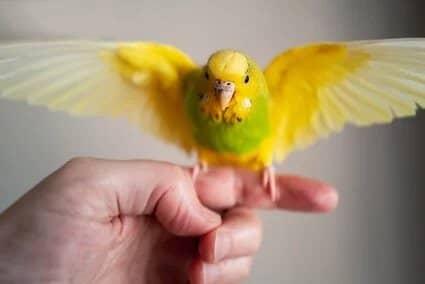
-
Ward Off Predator
Whether you have brought a new pet or just touched him, birds may assume you a predator and warn you by flipping his wings. Sometimes bird-flipping his wings indicates scaring off a potential predator.
When a bird flaps its wings, it is sending out a visual signal that says, “I’m here, and I’m bigger than you are, back off.” By doing this, the bird is trying to intimidate any potential predators and keep them from attacking.
-
Excercise
A bird in the wild needs to be able to fly in order to escape from predators and find food. In captivity, however, birds don’t have the same need to fly, and they often do a little exercise. That is why many pet birds are overweight and unhealthy.
But often birds do flapping their wings to stretch and exercise. When a bird flaps its wings, it not only does a good workout, but it also helps to keep its feathers healthy and strong. After all, wing-flapping is a natural behavior for birds, which they do to relieve boredom and stress.
The exercise wing flapping is often very gentle and slow without much noise, and birds often do it in the morning.
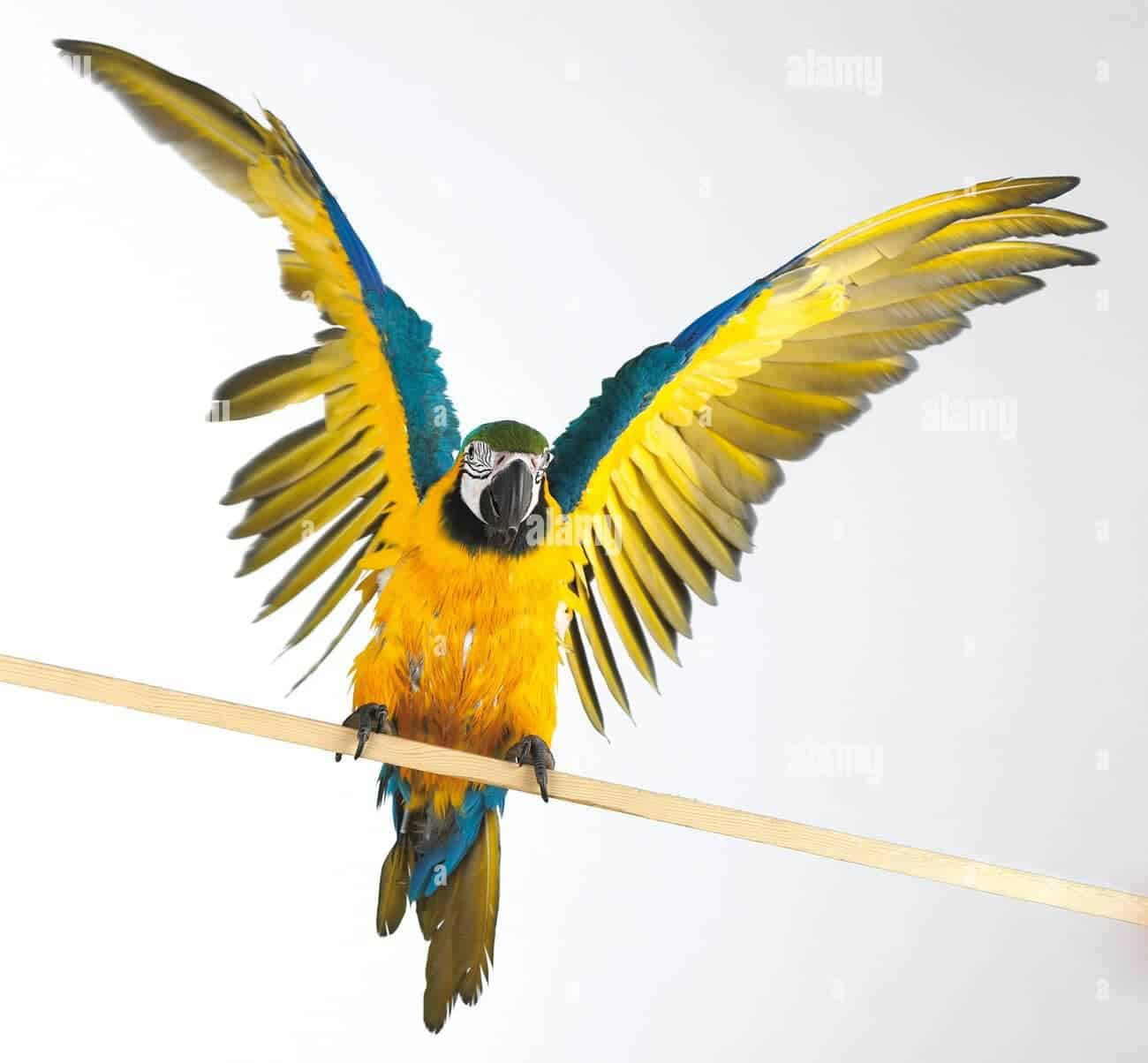
-
Stay Cool
In the heat of summer, many birds take to flapping their wings in an effort to stay cool. While this may seem like strange behavior, it actually makes perfect sense when you understand how birds regulate their body temperature.
Unlike mammals, birds do not sweat to cool off. Instead, they rely on painting (breathing quickly), keeping wings off their body and flipping wings to beat the heat. When it’s hot outside, flapping their wings creates a breeze that helps evaporate the water on their body, providing a cooling effect.
Not only flapping their wings, but birds will also often stand in water or sit in the shade to stay cool.
Finally, wing-flapping helps birds to stay cool by circulating air around their bodies. So if you see your bird flapping its wings, it could be trying to tell you something important!
Don’t be too alarmed if you see a bird flapping its wings, – there’s probably a perfectly good explanation for it!
Why Is My Bird Flapping Its Wings And Screaming & Screeching?
If your bird is flapping its wings and making noise while it’s in its cage, it could be feeling claustrophobic or anxious. But wing-flapping and screaming can also be signs of stress or fear. However, if the bird is screaming and flipping its wings followed by hissing, screeching and making loud noises, the bird is definitely annoyed of something.
Maybe it’s a change of environment, change of a cage or any other pet or situation. Paying attention to the flipping wings may indicate a problem.
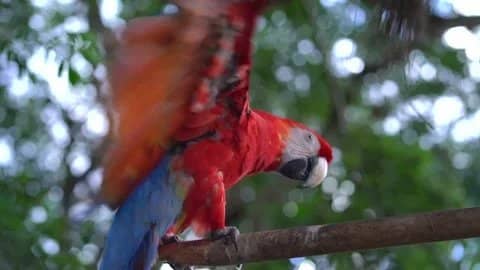
Why Is My Bird Flapping Its Wings At Night?
If your bird is flapping its wings at night, he is probably annoyed, frustrated, or disturbed. Birds are diurnal and natural sleepers at night and usually only stay awake during the day. However, if they’re disturbed by loud noises or bright lights, they may start flapping their wings to signal their frustration. And not only that, birds may also be scared of the dark, loneliness or sometimes is scared of a predator that might be around.
If your bird is doing this, try to create a quiet, dark environment for it to sleep in. You can also try using a nightlight to help your bird feel more comfortable. Lastly, make sure to give your bird plenty of time to rest during the day so it doesn’t get too tired and agitated at night.
Why Are My Birds Wings Twitching?
Birds use body language to communicate with other birds, and wing twitching is one of them. Bird wings twitching is mostly a sign of excitement, either in response to something the bird is seeing or as part of a mating ritual. In some cases, twitching may also be a way for birds to loosen up their muscles before taking flight.
How Do You Know If Your Bird Trusts You?
One of the best things about having a pet bird is developing a close bond with them. But how can you tell if your feathered friend trusts you? Here are a few signs to look for:
· Your bird willingly comes out of their cage when you approach them.
· They allow you to handle them without trying to escape.
· They make eye contact with you and seem relaxed in your presence.
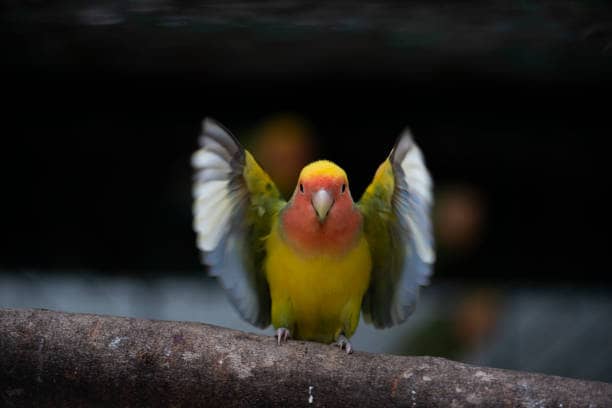
· They preen themselves in front of you or even offer to preen your hair or clothes.
· They make soft sounds or “chirp” at you when they see you, instead of hiding away.
If you see any of these behaviors, it’s a good sign that your bird trusts you and enjoys your company. Just be sure to return the favor by handling them gently and providing them with a comfortable home where they feel safe and loved.
What Does It Mean When A Parakeet Flaps Its Wings Without Flying?
Any bird owner knows that their feathered friend likes to flap its wings, but what does it mean when a parakeet flares its wings without actually taking flight?
While it might look like your parakeet is just getting some exercise, wing-flapping can actually be a sign of excitement, fear, or aggression. If your parakeet is flapping its wings while chirping and hopping around the cage, it’s likely just expressing its joy. However, if your parakeet starts flapping its wings while making low growling noises, it might be feeling threatened and trying to scare off potential predators. Lastly, if your parakeet starts flapping its wings and lunging at you or other birds, it might be feeling aggressive and showing dominance.

Why Is My Cockatiel Flapping His Wings
If you’ve ever owned a cockatiel, you know that they are very expressive creatures. They love to whistle and sing, and they also enjoy flapping their wings.
In the wild, cockatiels use wing flapping as a way to ward off predators or signal to other birds that there is danger nearby. In captivity, cockatiels often flap their wings when they feel excitement or threat or anxiety. If your cockatiel is flapping his wings excessively, it could be a sign that he is feeling stressed. Try to identify the source of his stress and take steps to alleviate it.
This may include providing more perches and toys, increasing the number of hours of direct sunlight he receives, or spending more time interacting with him. By reducing his stress, you can help to keep your cockatiel healthy and happy.
Why Are My Budgies Flapping Their Wings At Each Other
In most cases, budgies flapping their wings at each other is safe and simply means that the birds are enjoying each other’s company. However, there are also times when wing-flapping can be a sign of aggression. If one bird is constantly chasing or pecking at another, the victim may try to defend itself by flapping its wings.
This behavior can also be seen in birds that are competing for mates. In general, budgies will flap their wings at each other if they feel comfortable or competing with each other. However, if you see any signs of aggression, it’s best to separate the birds and provide them with more space.

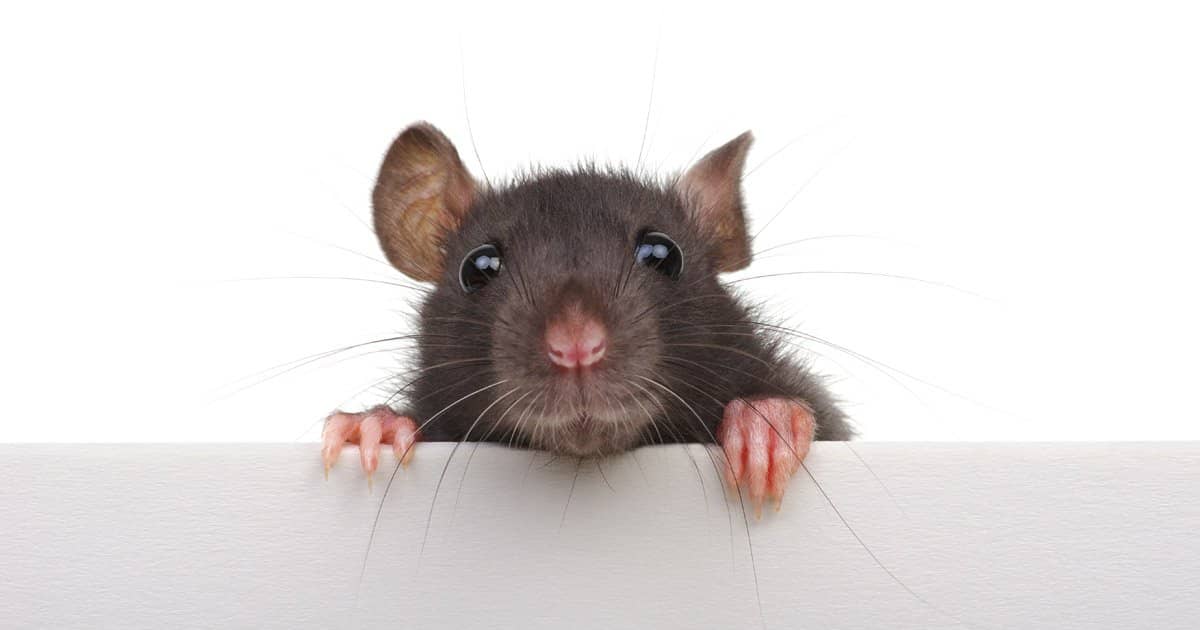
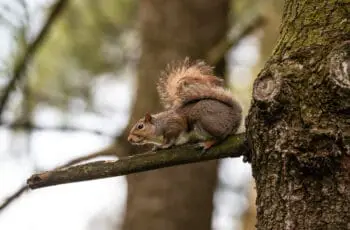
Karen Norton
My bird has liver disease, and she is flicking her wings a lot. What is wrong